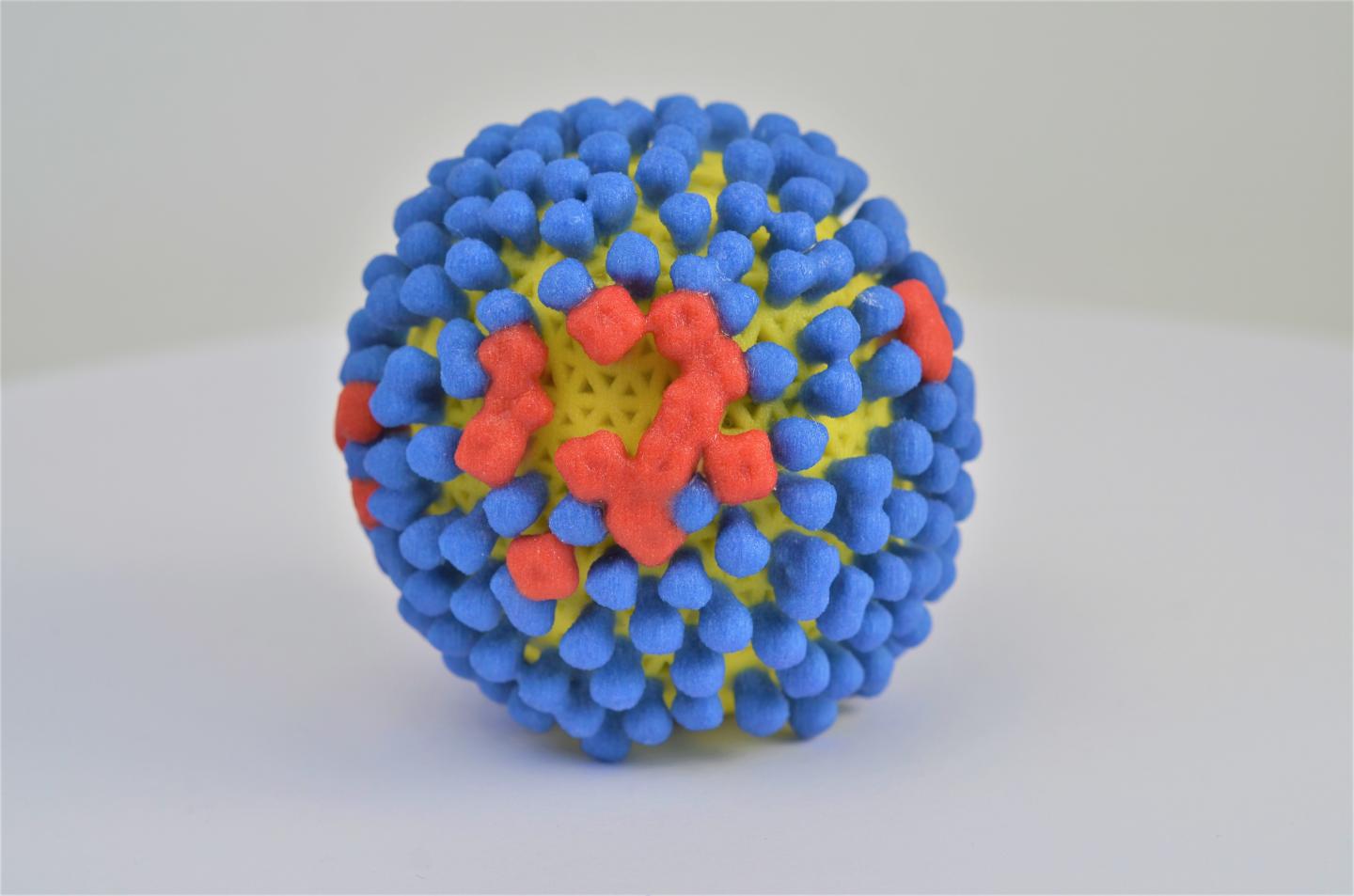
Credit: NIH
The National Institute of Allergy and Infectious Diseases (NIAID), part of the National Institutes of Health (NIH), has announced two awards for the study of influenza immunity in children. The awards, which may total more than $64 million over seven years, will support studies led by Cincinnati Children’s Hospital Medical Center in Ohio and St. Jude Children’s Research Hospital in Memphis, Tennessee, examining how young children’s immune systems respond over multiple years to their initial influenza infection and their first vaccination.
Studies suggest that a person’s first encounter with an influenza virus or vaccine, which usually occurs in early childhood, influences how their immune system reacts to subsequent influenza virus or vaccine exposures. This phenomenon, called “immunologic imprinting,” may help protect against future infections with similar influenza subtypes. It may also impact–and, in some cases, negatively influence–how a person’s immune system responds to a seasonal influenza vaccination.
However, the specific effects of imprinting are still poorly understood. By studying children’s immune responses to early influenza infection and subsequent exposures as they mature, researchers hope to understand the factors underlying immune memory and a person’s ability to mount an immune response to different influenza subtypes. Such insights could help scientists design more effective influenza vaccines. The research will also address a knowledge gap identified in NIAID’s strategic plan for developing a universal influenza vaccine–a vaccine that can provide durable protection for all age groups against multiple influenza strains, including those that might cause a pandemic.
“NIAID is pleased to support these important observational studies of infants to broaden our understanding of how immunity to influenza develops and evolves over time,” said NIAID Director Anthony S. Fauci, M.D. “A comprehensive understanding of immunological imprinting will help inform the development of more broadly and durably protective influenza vaccines.”
Principal investigators Paul Thomas, Ph.D., of St. Jude Children’s Research Hospital, and Aubree Gordon, Ph.D., of the University of Michigan School of Public Health, will lead studies designed to follow more than 3,000 infants and young children in Los Angeles; Managua, Nicaragua; and Wellington, New Zealand for seven years. This grant may provide up to $34.3 million in support over seven years.
Another grant will fund principal investigator Mary A. Staat, M.D., of Cincinnati Children’s to follow more than 2,000 infants and their mothers from sites in Cincinnati and in Mexico City for at least three years, using weekly clinical visits to gather valuable data about the changes in their immune systems. This award may total as much as $29.9 million over seven years.
Both research teams will regularly collect nasal swabs and blood samples from participating infants and young children to understand immune B-cell and T-cell responses and function, the antibodies produced, and other changes as the children’s immune systems develop and encounter the influenza virus and influenza vaccines for the first time. Parents or caregivers will be asked to provide informed consent for their children to participate in the studies.
Investigators hope that their findings may provide insight into how imprinting may be used to boost the effectiveness of influenza vaccines, or how a new vaccine may provide broader immunity against influenza early in a child’s life. While these two long-term studies will focus on children, their results may eventually benefit people of all ages, as researchers use the findings to investigate vaccines that provide improved lifelong influenza immunity against different strains of the influenza virus.
NIAID conducts and supports research–at NIH, throughout the United States, and worldwide–to study the causes of infectious and immune-mediated diseases, and to develop better means of preventing, diagnosing and treating these illnesses. News releases, fact sheets and other NIAID-related materials are available on the NIAID website.
###
About the National Institutes of Health (NIH): NIH, the nation’s medical research agency, includes 27 Institutes and Centers and is a component of the U.S. Department of Health and Human Services. NIH is the primary federal agency conducting and supporting basic, clinical, and translational medical research, and is investigating the causes, treatments, and cures for both common and rare diseases. For more information about NIH and its programs, visit http://www.
NIH…Turning Discovery Into Health®
Media Contact
Elizabeth Deatrick
[email protected]
Original Source
https:/




